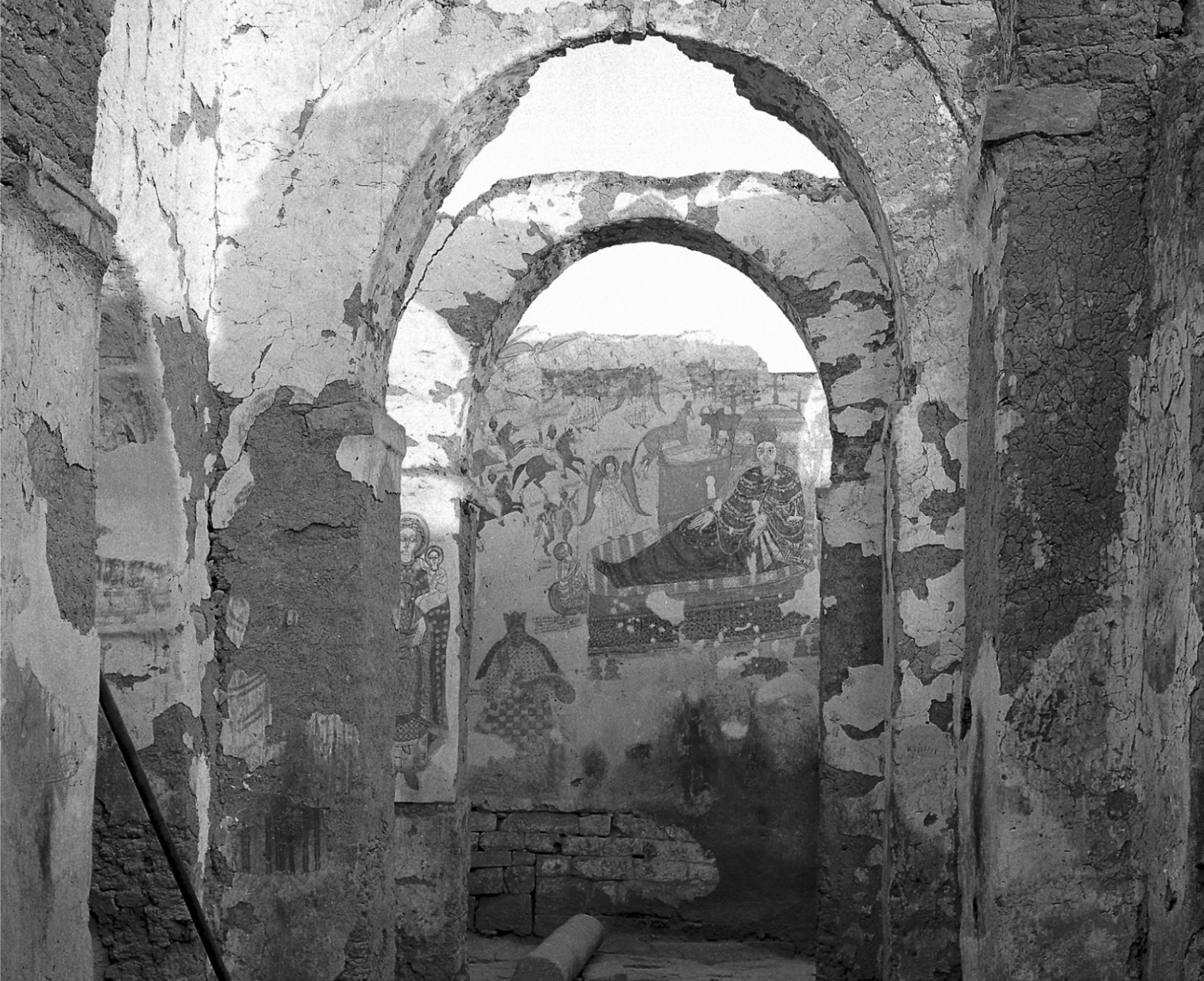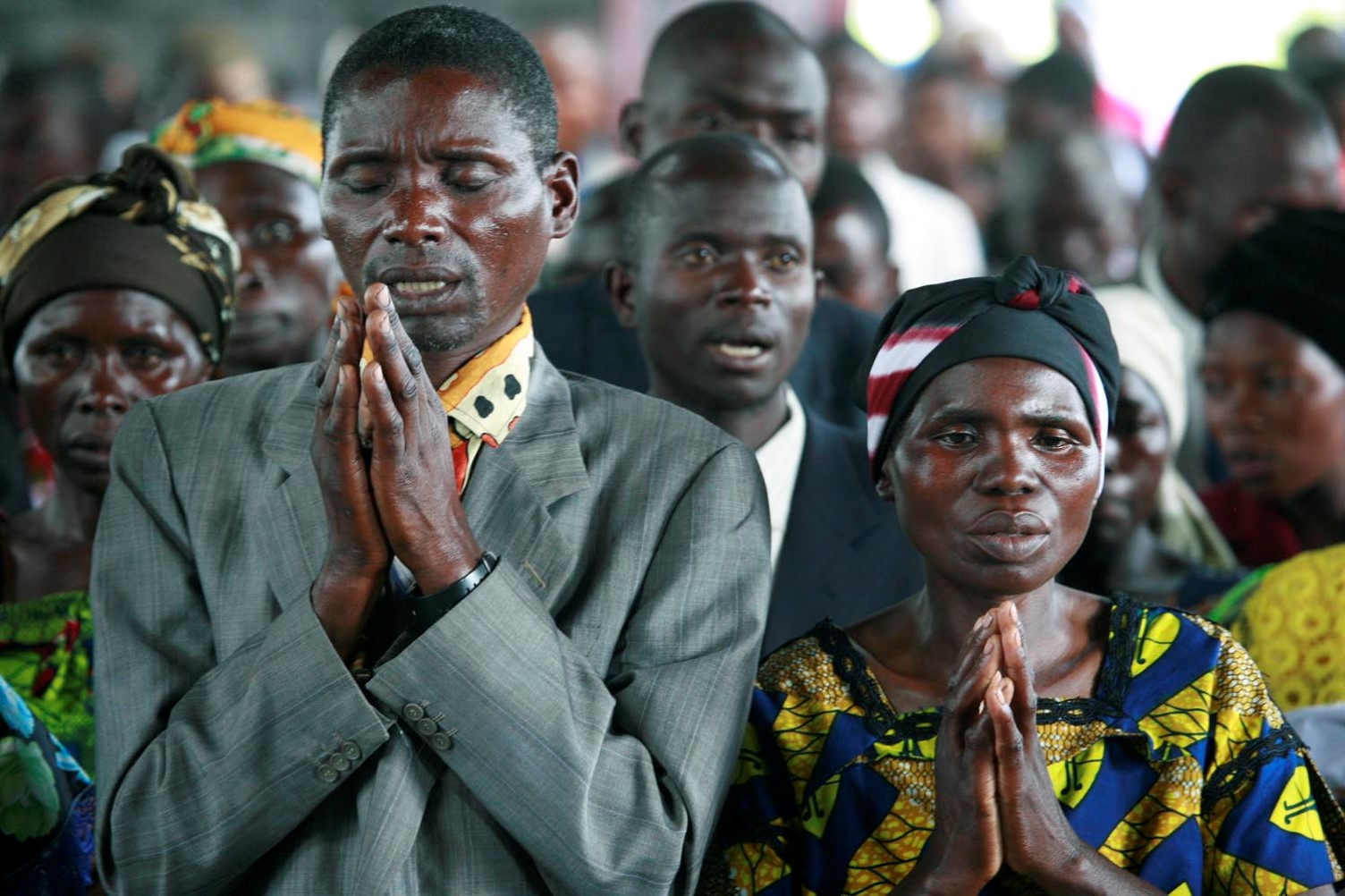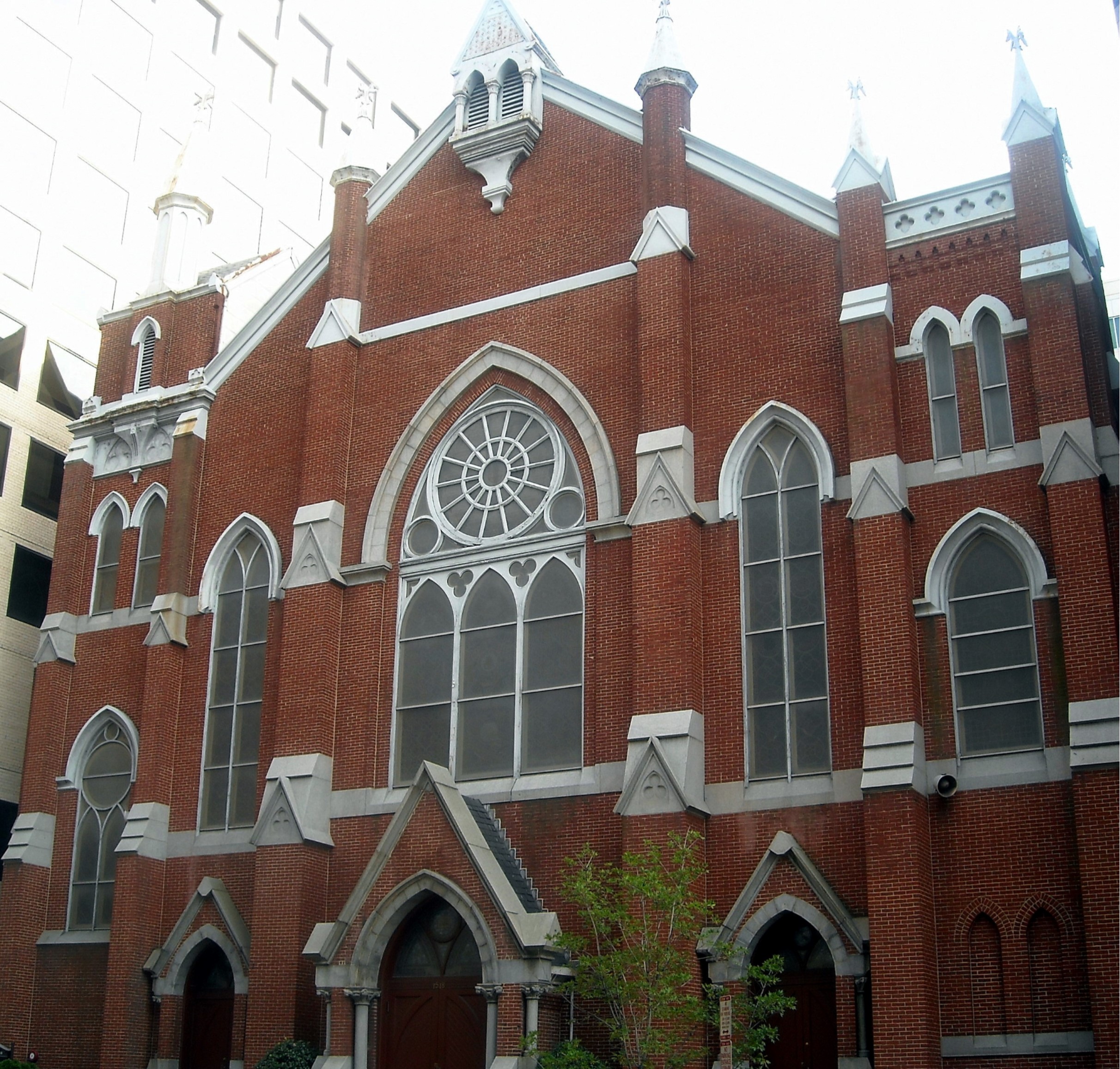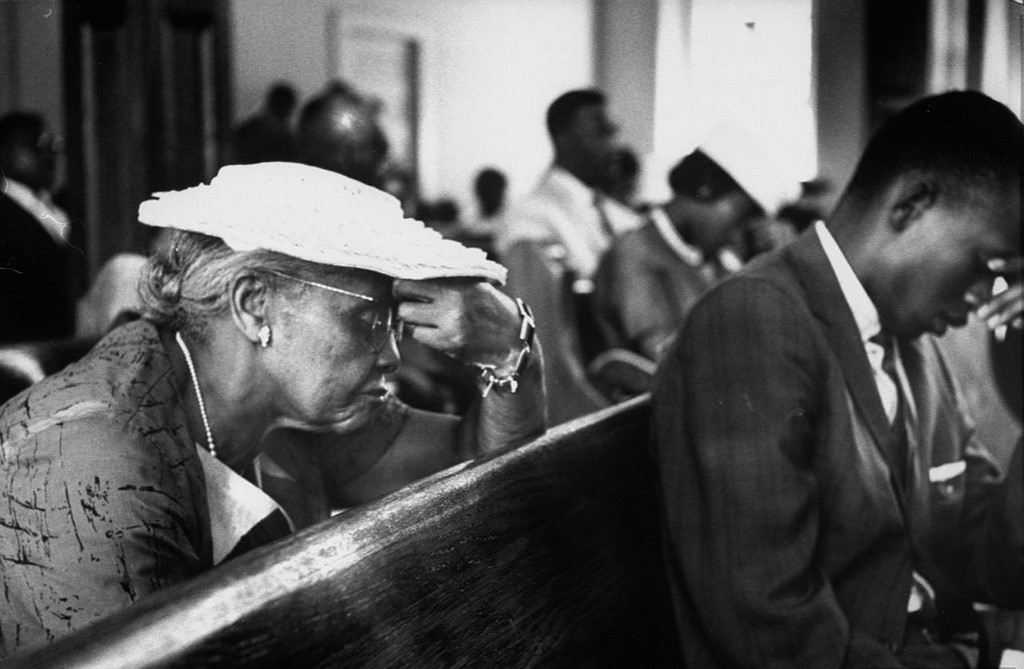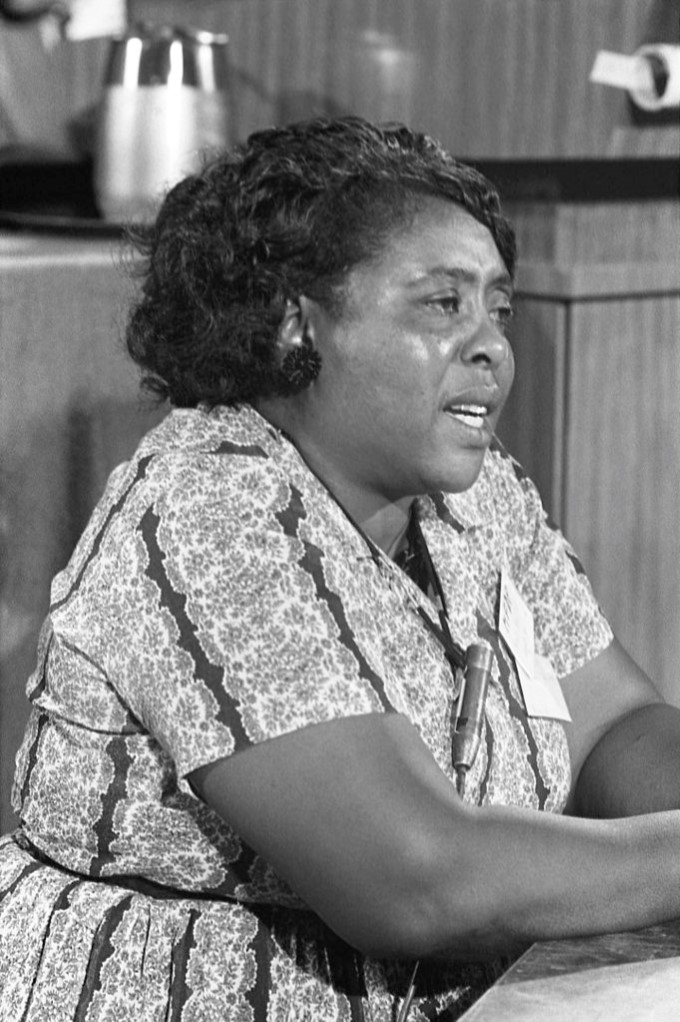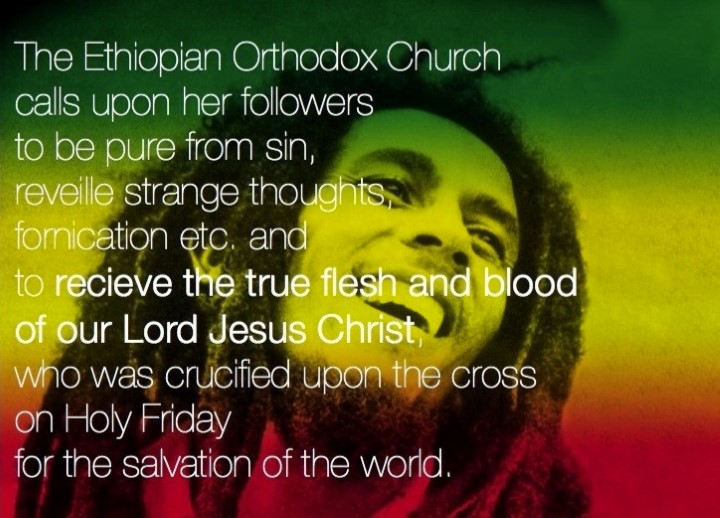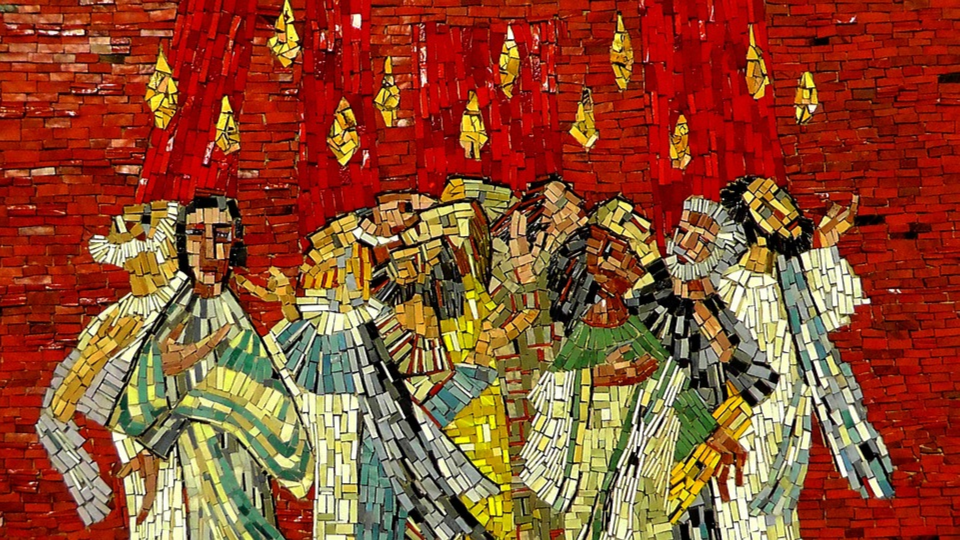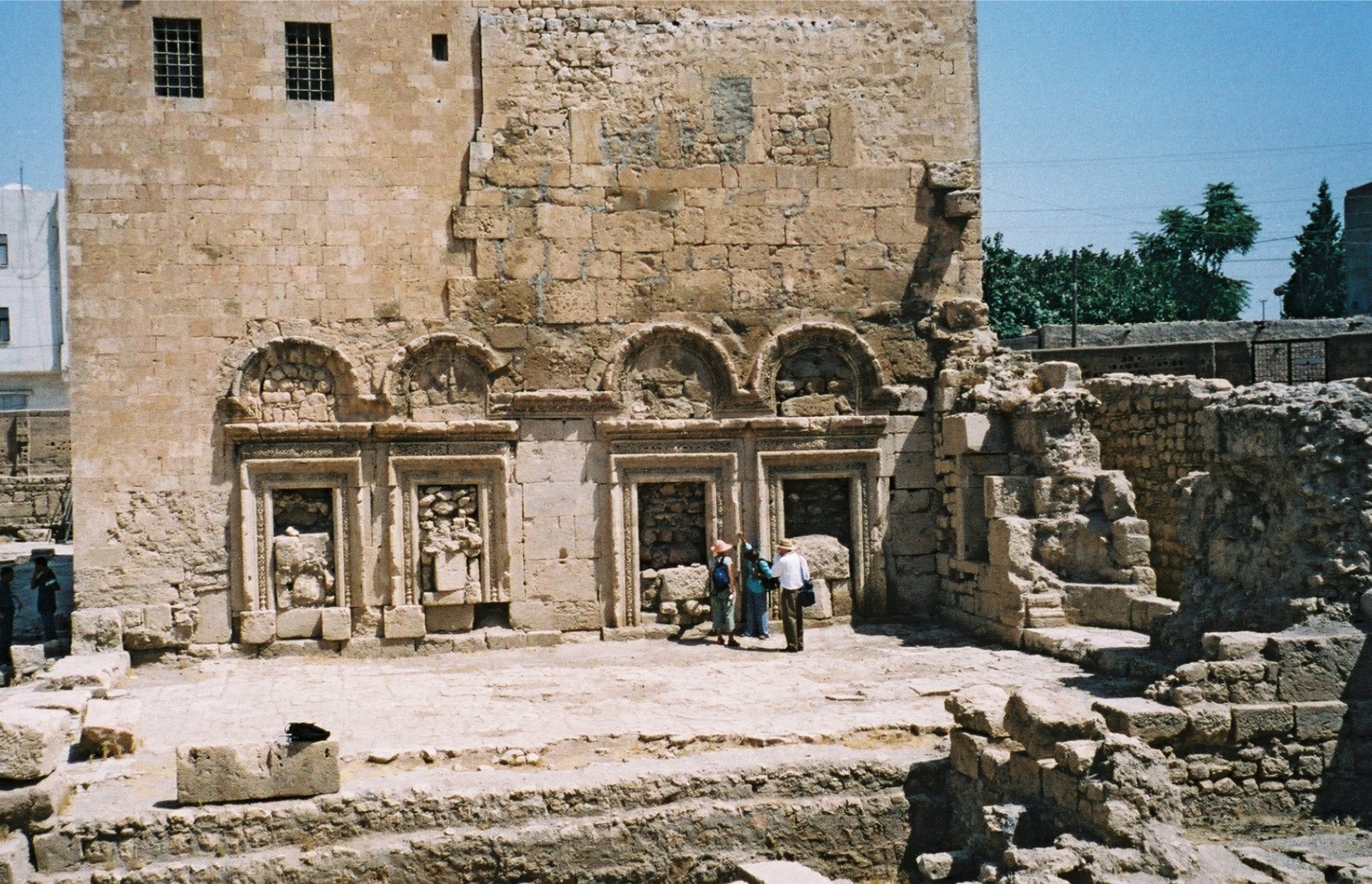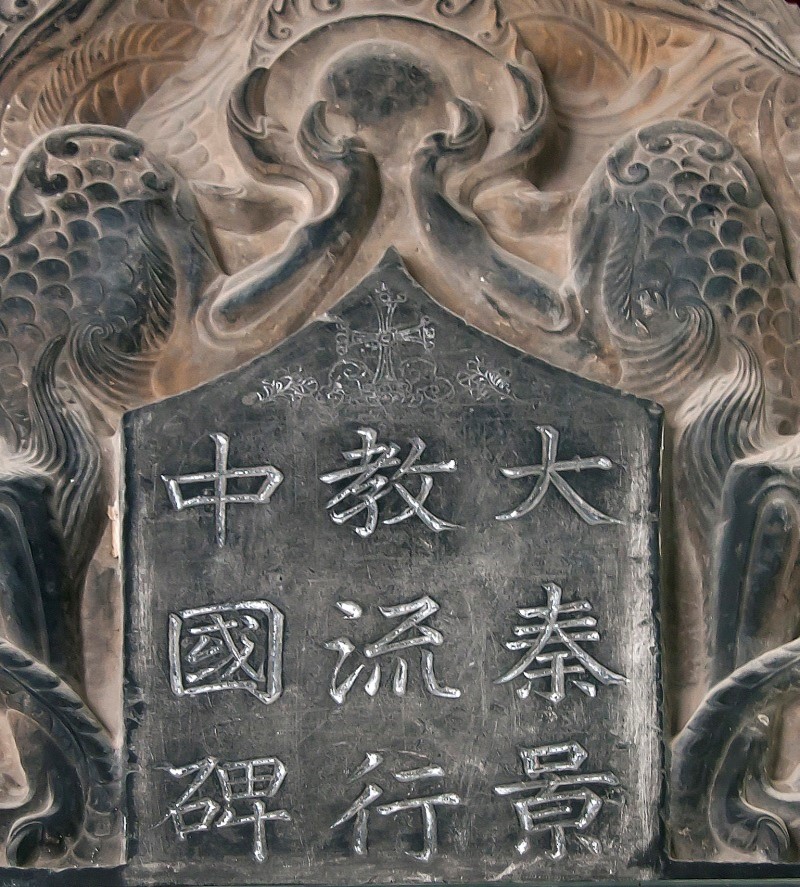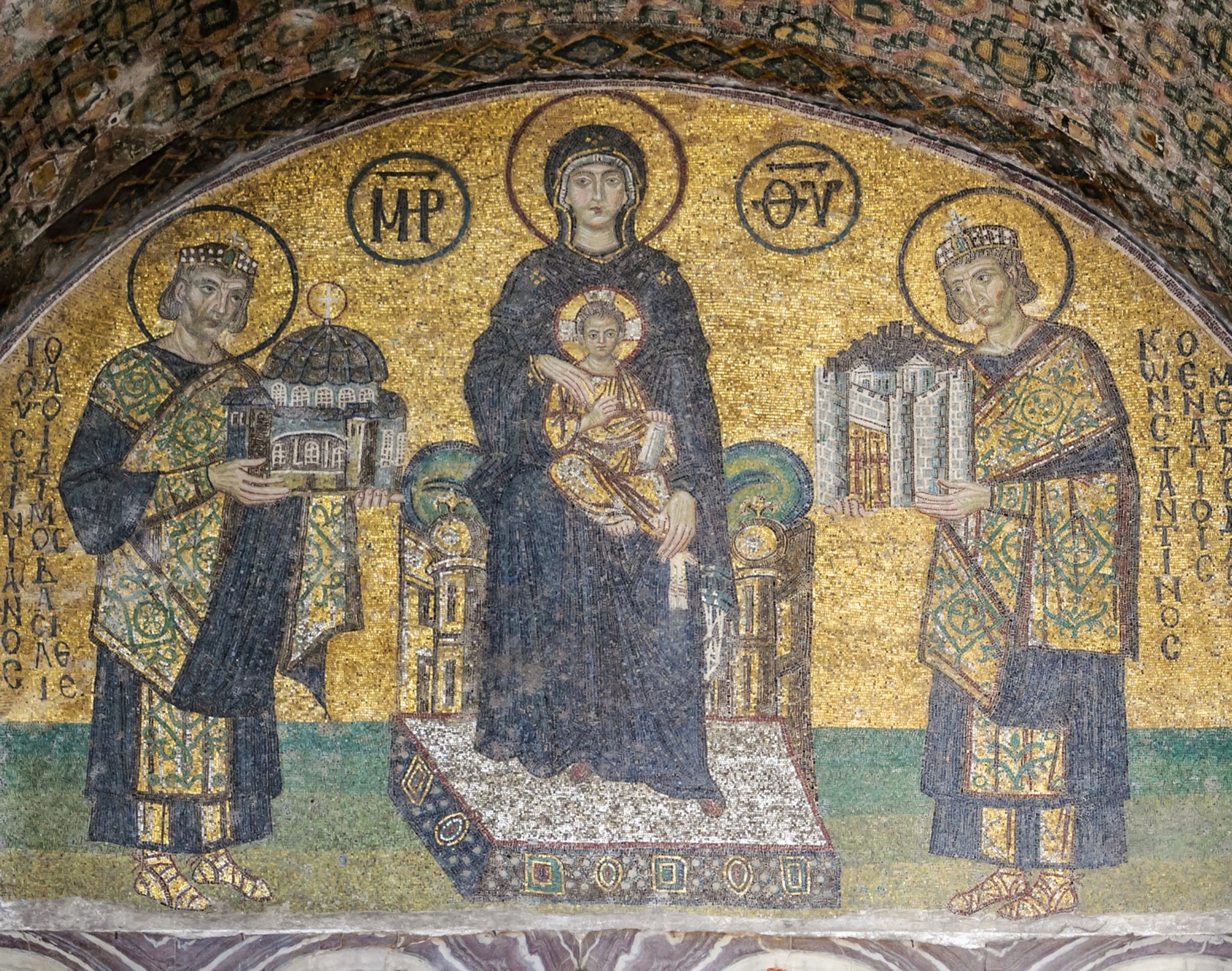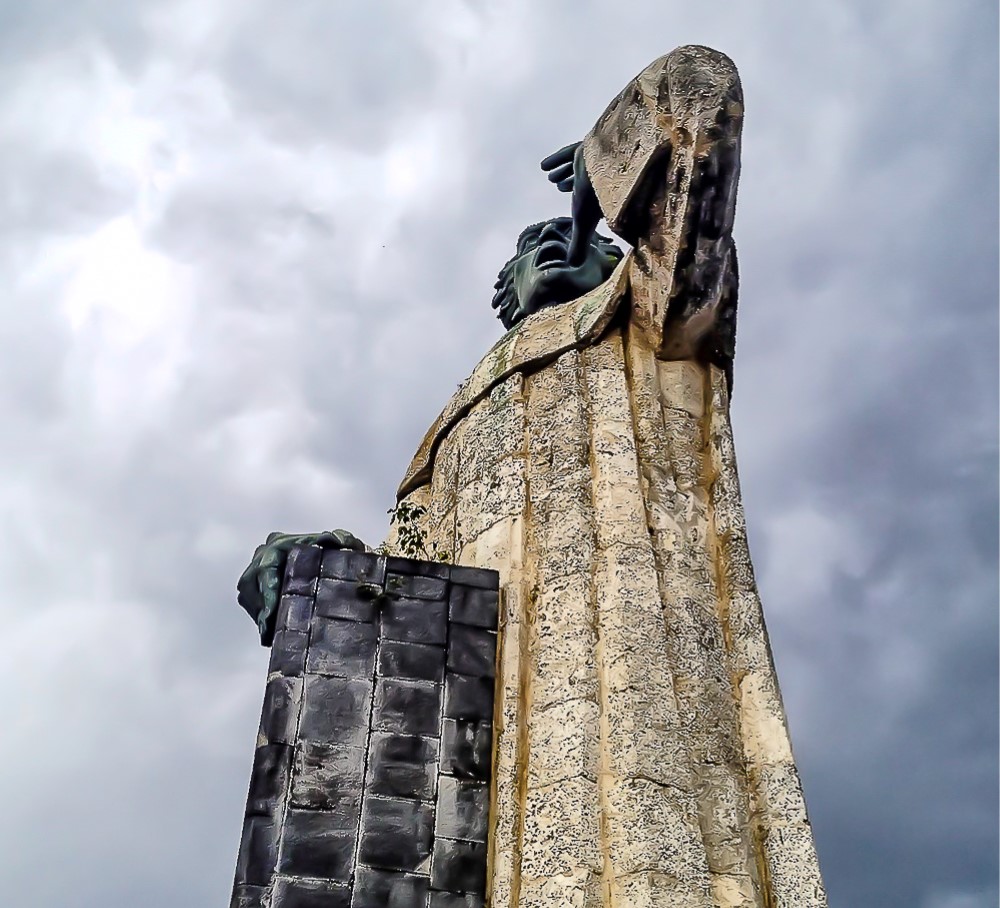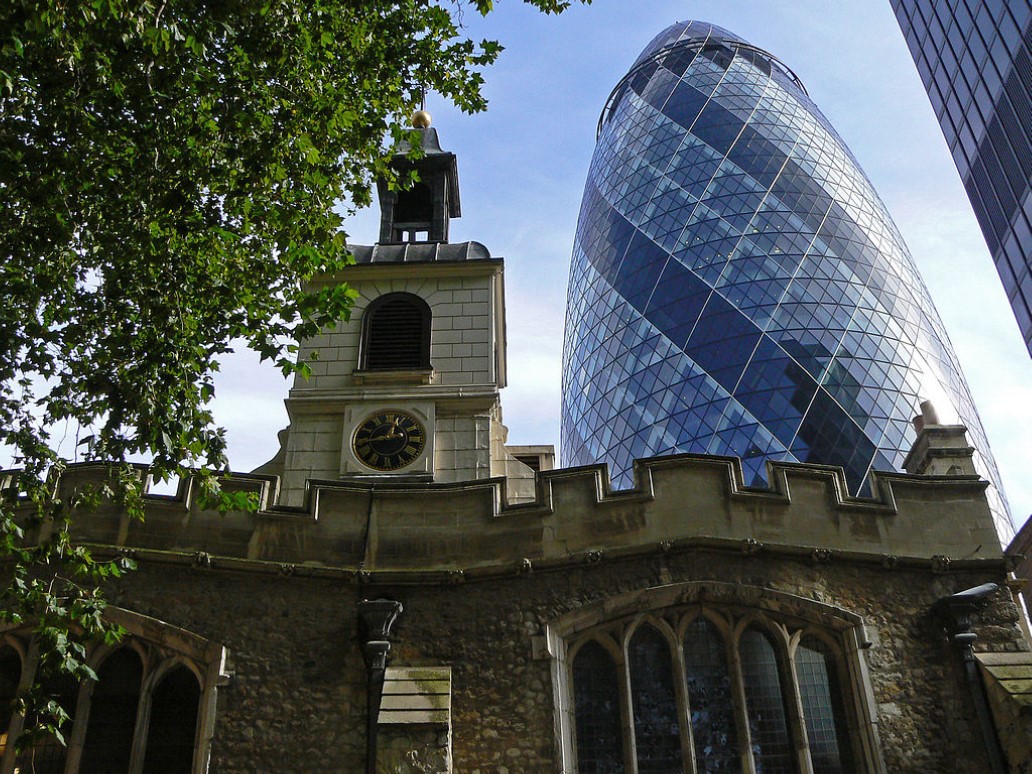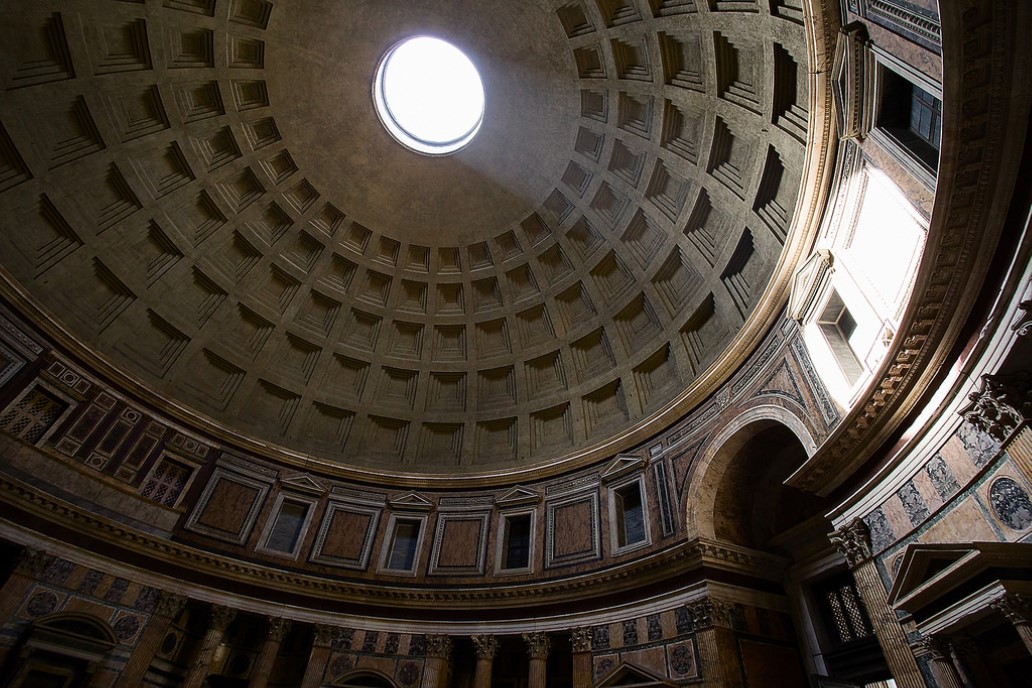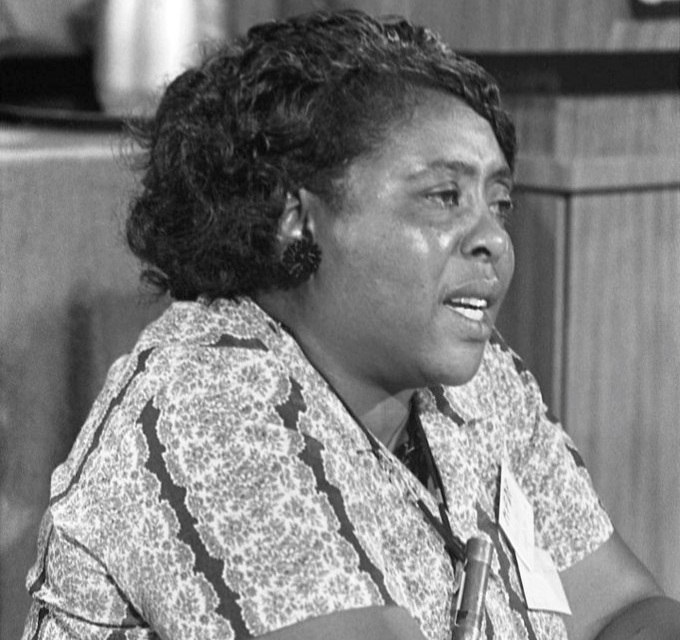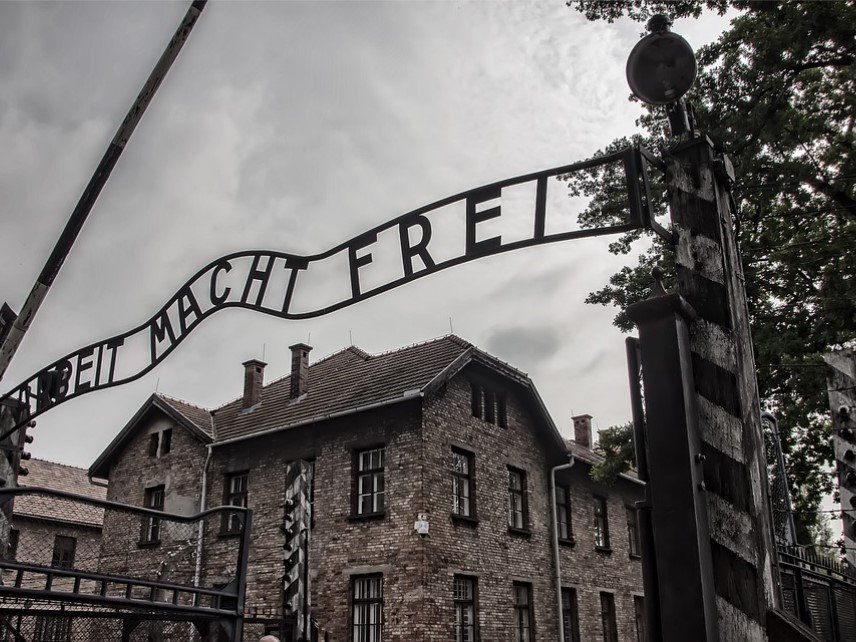African American Spirituality
Faith, Resilience, Healing, and Justice
Photograph: Civil Rights activist Fannie Lou Hamer at the Democratic National Convention in Atlantic City, New Jersey, in August of 1964. Photo credit: Warren K. Leffner, Public Domain. Fannie Lou Hamer was a courageous civil rights leader, well known for singing spirituals and hymns as she helped organize the Mississippi Freedom Summer and the Student Non-Violent Coordinating Committee.
Introduction
The selection of perspectives on church history in this section — Church and Empire — has been guided by three factors: (1) to demonstrate that Christianity has not been a “white man’s religion”; (2) the study of empire as a recurring motif in Scripture by recent biblical studies scholars; and (3) explorations of biblical Christian ethics on issues of power and polity, to understand how Christians were faithful to Christ or not. Christian relational ethics continues a Christian theological anthropology that began with reflection on the human nature of Jesus, and the human experience of biblical Israel.
This section explores the spiritual experiences and pastoral practices of African American Christians in the U.S.
Other Resources on African American Spirituality
Yolanda Smith, The Musical Theology of Spirituals. Christianity Today, 1999. This article is a short introduction to the African American songs called Spirituals, simple songs crafted by enslaved people while they suffered under brutal slave masters, drawn from biblical language and often set to West African melodies. This musical tradition is helpful to consider when disentangling God from being the cause of human evil and suffering.
Mervyn A. Warren, King Came Preaching: The Pulpit Power of Dr. Martin Luther King Jr. InterVarsity Press | Amazon page, Nov 1, 2001.
Barbara A. Holmes, Joy Unspeakable: Contemplative Practices of the Black Church. Augsburg Fortress Publishers | Amazon page, Jul 1, 2004. Holmes’ insights into emotions, processing, time, and community are very helpful.
Robert W. Kellemen and Karole A. Edwards, Beyond the Suffering: Embracing the Legacy of African American Soul Care and Spiritual Direction. Baker Books | Amazon page, Aug 1, 2007.
Melva Wilson Costen, African American Christian Worship. Abingdon | Amazon page, Sep 1, 2007.
Cleophus James LaRue, Power in the Pulpit: How America's Most Effective Black Preachers Prepare Their Sermons. Westminster John Knox Press | Amazon page, Apr 20, 2009.
John Legend, Surprises Baptist Church in West Philly. John Legend, Jun 19, 2011. Legend makes brief comments on the contribution of the church and gospel music to soul which are valuable.
Emmett G. Price III, The Black Church and Hip Hop Culture: Toward Bridging the Generational Divide. Scarecrow Press | Amazon page, 2012.
Diana Hayes, Forged in the Fiery Furnace: African American Spirituality. Orbis Books | Amazon page, Mar 19, 2012.
Wintley Phipps, Amazing Grace. Gaither, Apr 2012. A YouTube video on the melody being a West African sorrow chant on the pentatonic scale.
Cornel West and Christa Buchendorf, Black Prophetic Fire. Beacon Press | Amazon page, Oct 2014. West argues that W. E. B. Du Bois, Martin Luther King Jr., Ella Baker, Malcolm X, and Ida B. Wells have been sanitized and need to be recovered. See Chris Hedges, Cornel West and the Fight to Save the Black Prophetic Tradition. Black Agenda Report, Sep 10, 2013. Hedges quotes West:
“It no longer has a legitimacy or significant foothold in the minds of the black masses,” West said. “With corporate media and the narrowing of the imagination of all Americans, including black people, there is an erasure of memory. This is the near death of the black prophetic tradition. It is a grave issue. It is a matter of life and death. It means that the major roadblock to American fascism, which has been the black prophetic tradition, is gone. To imagine America without the black prophetic tradition, from Frederick Douglass to Fannie Lou Hamer, means an American authoritarian regime, American fascism. We already have the infrastructure in place for the police state. Black intelligence and black suspicion is still there among the masses,” West said. “Black people are not stupid. We are not completely duped. We are just scared. We don’t think there is any alternative. This is re-niggerization of the black professional class. They have big money, nice positions, comfort and convenience, but are scared, intimidated, afraid to tell the truth and will not bear witness to justice. Those who are incorporated into the black professional and political class are willing to tolerate disrespect for the black masses and sip their tea and accept their checks and gain access to power. That is what niggerization is—keeping people afraid and intimidated.”
Jelani Greenridge, 30 Years of Christian Hip Hop. Urban Faith, Dec 3, 2015. Becky Blanchard, The Social Significance of Rap & Hip-Hop Culture. EDGE, ~1999. Greenridge surveys songs and groups (with links to music videos) and gives some personal and social commentary. Blanchard gives a more general overview of rap and hip-hop as social protest tradition at least in its origins.
Frank Thomas, Black Preaching Changed the Course of This Country. What Creates That Style? Washington Post, May 9, 2016.
Joshua L. Lazard, "I Speak to God in Public": Are Young Black Millennials Reclaiming a Theology of Resistance? Religion Dispatches, Apr 14, 2017.
Luke A. Powery, Were You There: Lenten Reflections on the Spirituals. Westminster John Knox Press | Amazon page, 2019. This is a valuable, excellent, and usable set of devotional reflections, showing the depth of the Negro Spirituals’ theology.
Anne E. Streaty Wimberly, Anne Lockhart-Gilroy, and Nathaniel D. West (editors), From Lament to Advocacy: Black Religious Education and Public Ministry. Wesley’s Foundry Books | Amazon page, Mar 27, 2020. “This resource sets forth the cultural imperatives of ministry and the contextual nature of a public theology of religious education that connects faith formation and action in addressing profoundly difficult, unjust, and wounding experiences of Black people in society. The book begins with the, often neglected, practice of lament as a necessary first step in vital public theological reflection and action. The book proceeds with meanings and ways of equipping persons within and beyond church settings to critically reflect on life and leadership in the throes of present-day social and political realities. It further provides practices for forming skills and shows how to partner with the spiritual guides needed to shape a just public arena and fruitful individual lives.”
Robert Saler and Alexander Lingas, with Shawn Wallace, Turbo Qualls, and Katherine Weston, Let My Prayer Arise! Music in the Experience of African American Orthodox Christians. Luminous, May 21, 2021. This audio recording is a rich conversation about racial history, culture, music, and spirituality.
Paul Abernathy, The Prayer of a Broken Heart: An Orthodox Christian Reflection on African American Spirituality. Ancient Faith Publishing, Feb 2022. Includes very moving biographical information from African American Christians in the past. “What do African American spirituality and Orthodox Christianity have in common? More than you might think. Drawing on both his own background as a biracial convert to Orthodoxy and historical resources that span St. Athanasius to Frederick Douglass, Fr. Paul Abernathy details the many intersections between these two traditions, including a redemptive understanding of the Cross and a faith shaped by suffering and persecution. In so doing, he points to a new path whereby Orthodox Christianity can uniquely answer the spiritual needs of African Americans. Fr. Paul Abernathy is an African American Orthodox Christian priest and founding pastor of St. Moses the Black Orthodox Church in the Hill District, a predominantly Black neighborhood of Pittsburgh, Pennsylvania. He is the founder and CEO of the Neighborhood Resilience Project, an Orthodox Christian nonprofit focusing on building resilient, healing, and healthy communities through Trauma Informed Community Development. He is a nationally renowned speaker whose work has been featured on NBC, ABC, CBS, BBC, Ard (German) TV, and NPR. Fr. Paul is a U.S. Army Iraq War veteran and holds master’s degrees from the University of Pittsburgh and St. Tikhon’s Orthodox Theological Seminary. He and his beloved wife Kristina have two beautiful children.”
Church and Empire in Africa: Topics:
This section explores the experience and activities of Christians under various regimes in Africa. We divide this material into Africa Pre-1600, Africa Post-1600, African American Pre-1954, African American Post-1954, African American Spirituality, and the African Diaspora outside the U.S. The time period around 1600 AD is significant because: In the West, the Songhai Empire collapsed in 1591 and the Mali Empire was divided in 1610; in Central Africa, Idris Alooma, ruler of the Kanem-Bornu Empire, died in 1603; in the East, Portugal and the Catholic Church were expelled from Ethiopia in 1632; and on the coasts, accelerated conflict with European colonizers and slave traders
Church and Empire: Topics:
This page is part of our section on Church and Empire. These resources begin with a biblical exposition of Empire in Church and Empire and the meaning of Pentecost in Pentecost as Paradigm for Christianity and Cultures, then grouped by region: Middle East, Asia, Africa, Europe, Americas, then Nation-State, with special attention given to The Shoah of Nazi Germany.
Suffering: Topics:
This section on Suffering is organized in the following way: Suffering and God contains explanations of Scripture and God’s goodness and activity, and African American Faith embodies a deep, living Christian tradition of resistance to human evil and hoping in God. Grieving highlights resources for healthy grieving, both biblical and otherwise. Mental Health spotlights how Jesus and our experience of him intersect with various mental health needs. Church and Shoah is about Christians who were for and against Nazi Germany; it is drawn from our Church and Empire resources; we place it here because of how often people raise it as a question connected to human suffering. General Reflections highlights other resources that may not be Christian per se, but are thoughtful and helpful to consider.

